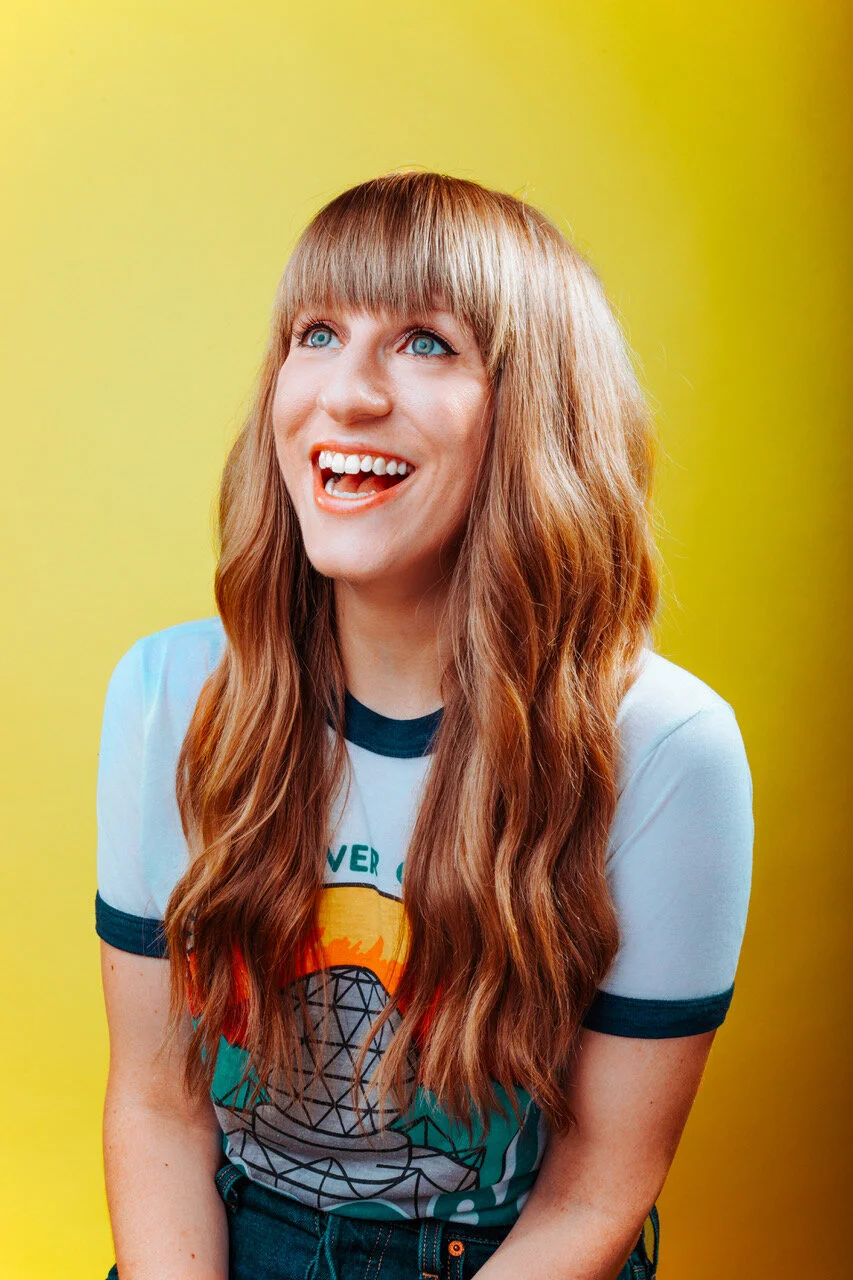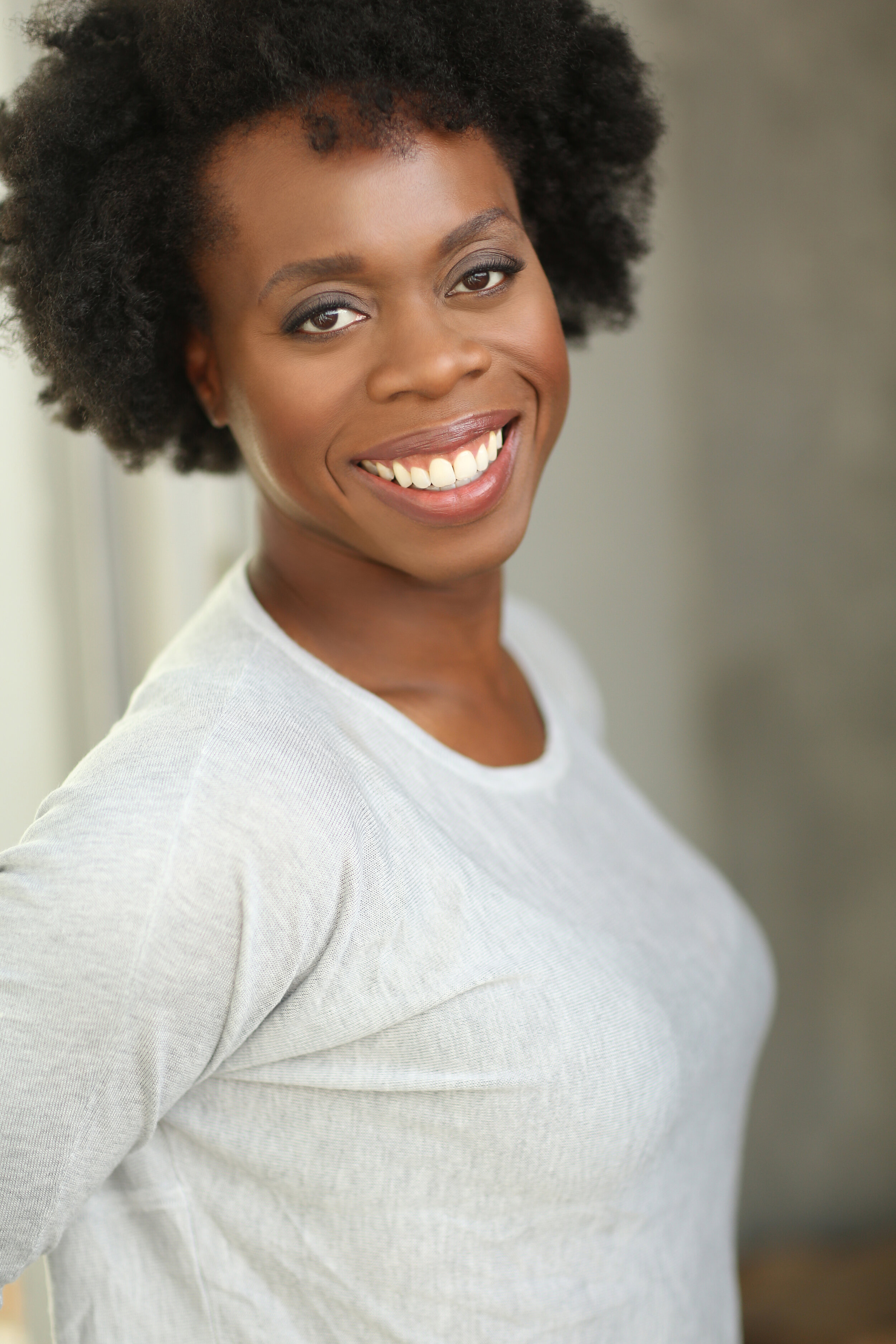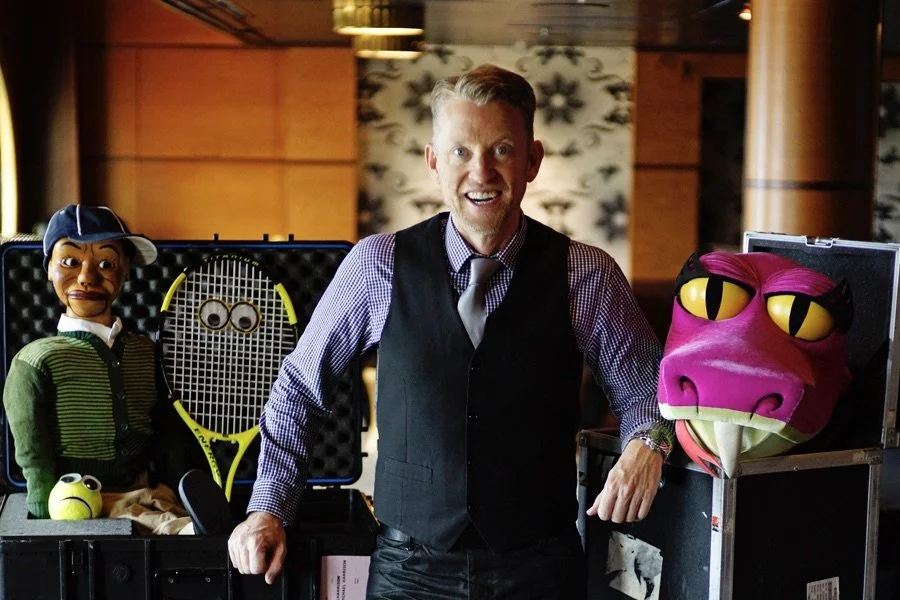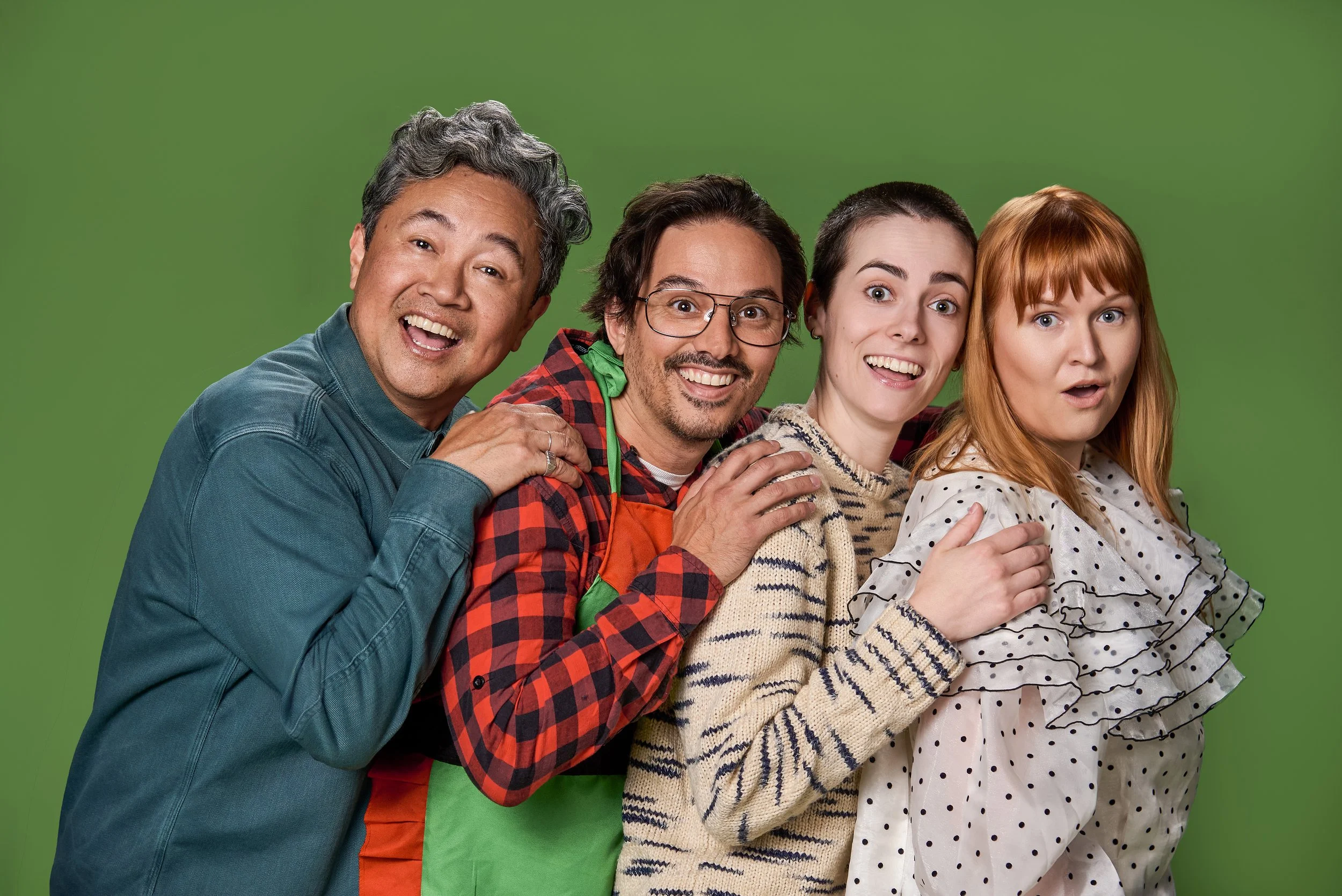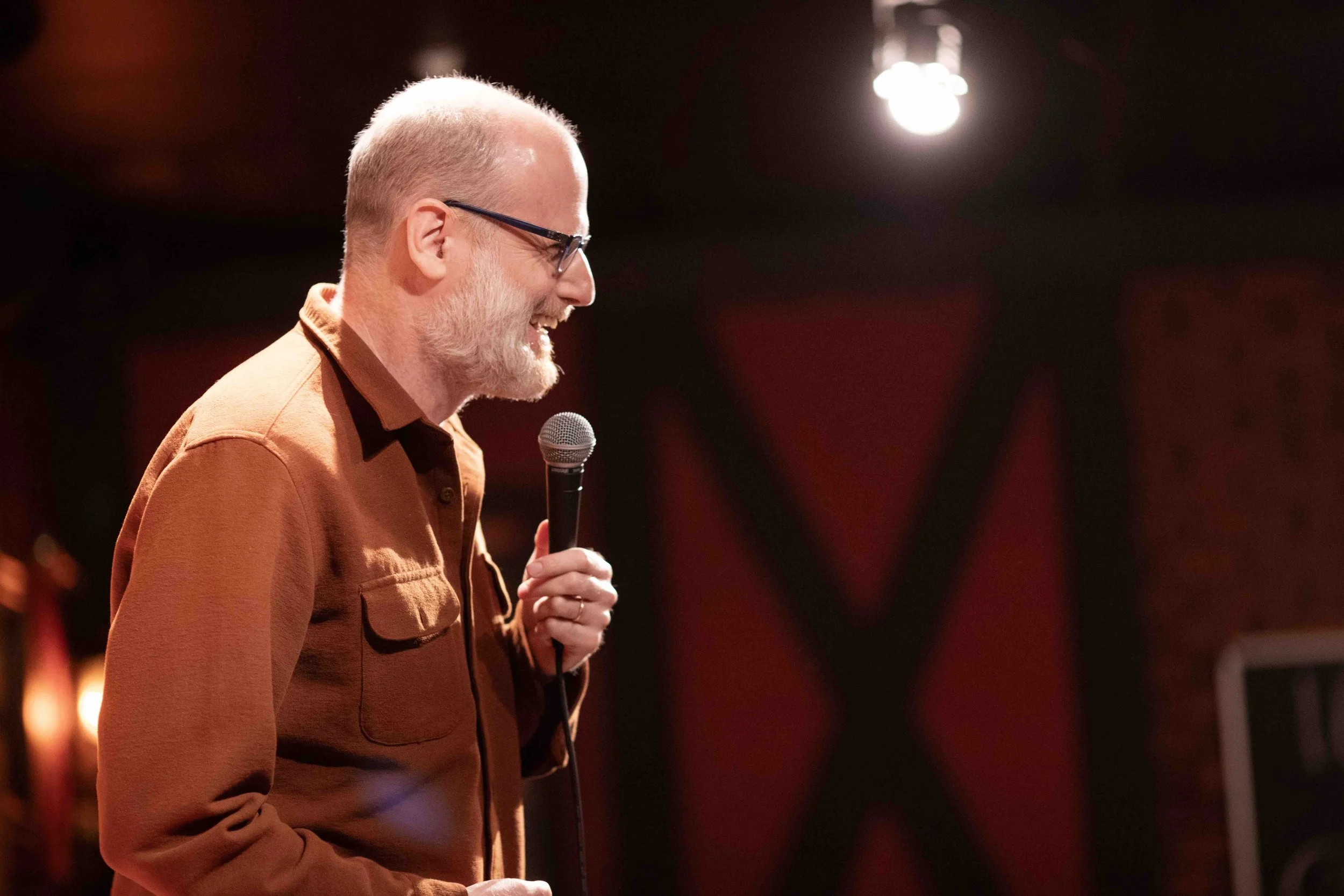Vancouver Improv Festival centres BIPOC artists on its virtual stages
Decolonization is the focus of the 2020 panel at the event, running September 30 to October 4
Nehiyo (Cree) actor and improvisor Todd Houseman (top) and Ben Gorodetsky, a Russian-Canadian theatre maker and improvisor, make up Folk Lordz, which is known for its political, cultural comedy.
The Vancouver Improv Festival takes place online from September 30 to October 4 on the festival’s YouTube channel.
IF YOU ASK people about improv, the first thing that might pop to mind for many is Whose Line is it Anyway?. Vancouver improv artist Amy Shostak would say that for a long time, the wildly popular TV show gave a fairly realistic picture of what most improv theatres looked like in the 1990s and early 2000s—a look that’s entirely outdated not because of the clothing but because of the casting.
Drew Carey hosted from 1998 to 2007, and when the show relaunched in 2013, his spot went to Aisha Tyler, a Black American actor and comedian. The program is just as successful now as when it started, but it doesn’t accurately reflect the art form today, according to Shostak, organizer of the Vancouver Improv Festival.
“Whose Line features predominantly cis white men focused on delivering the funniest, quippiest show possible, and it defined how much of the public thinks about improv,” Shostak tells Stir. “But that definition is artistically limiting, exclusionary, and honestly, after 20 years, it’s boring.
“You can’t watch Whose Line with today’s eyes without noticing ‘Whose Voices Are Missing?’” Shostak says. “Artists today are disrupting the dated preconception of what improv is by exploring form, playfully challenging what's expected, and centring identity in their work.”
Now in its 22nd year, the fest (which takes place virtually from September 30 to October 4) aims to put BIPOC and other marginalized people in the centre of its digital stages. Shows will stream live on the Vancouver Improv Fest YouTube channel, and workshops are taking place via Zoom. Austin, Texas-based artist Shannon Stott directs the Festival Ensemble for two performances, while Ben Gorodetsky and Todd Houseman of Folk Lordz will present an improvised evening of their signature cultural storytelling.
Alongside laughs from some of North America’s leading improvisors is a panel called Decolonization & Improv. The October 2 event is being hosted by Houseman, a Nehiyo (Cree) mixed-blood actor, improvisor, and writer from Edmonton.
It’s the fourth year the festival has organized a panel or forum around issues of equity. (The Vancouver Improv Festival is unrelated to the Vancouver TheatreSports League, which is undergoing a complete restructuring following recent accusations of racism and misogyny from two performers.)
“Our audiences need to see themselves represented more often,” Shostak says. “We need to share varied perspectives on the world.”
Nehiyo (Cree) mixed-blood actor, improvisor, and writer Todd Houseman watched his dad, Indigenous comedian Howie Miller, tackle racism on-stage.
Indigeneity and improv
One of Houseman’s goals for the genre—and the arts as a whole—is to have “diversity of programming” simply be considered programming.
“Though the road to a fully decolonized theatre space is a long one, I think we take steps in that direction when the work that is created by Black, Indigenous, and people of colour is regarded as regular theatrical work and not ‘BIPOC’ work,” Houseman tells Stir. “This is something I've noticed in granting language and in the language of season programming. It’s often a special thing or a separate thing to have BIPOC’s work showcased. This is getting better, I think, but it does take a long time to dismantle the historically white-majority spaces to appropriately represent the society that theatre mimics.”
Comedy has always been a major part of Houseman’s life. His father, Howie Miller, is one of North America’s leading Indigenous comedians, whose years of touring as a stand-up comic paved the way for younger performers. In high school, a friend of Houseman’s named Gordie Lucius (an Edmonton improvisor, writer, and comedian) asked him if he wanted to join the improv team. His participation marked a turning point.
“There was something about the community element to improv that really stuck with me,” Houseman says. “When I’d see my dad doing stand-up, it always felt so daunting and scary, partly because his jokes were trying to tackle the discrimination he’d felt in his life, and partly because it was him versus crowd if anything ever went wrong.
“In improv it’s never you versus the crowd; it’s us and the crowd, creating something together and live,” he says. “I believe this style of performance brings improvisors closer together and inspires a truly positive environment. This attracted me immensely as I never felt like I had a community prior to the improv and theatre community.”
Houseman says he shudders to think of where he’d be without having connected with Lucius and that network. He went on to join Edmonton’s Rapid Fire Theatre and began landing more acting roles on the stage and screen. However, he says that taking on roles for Indigenous individuals written by non-Indigenous people is almost always a sacrifice to his integrity: rather than celebrate his people, the parts usually revolve around the trauma or violence they have suffered.
There is intense racial discrimination across the country, Houseman says, which many people do not see or choose not to see.
“All of the experiences growing up surrounded by ideas that would wish harm or continued oppression toward my family and people have left me with an intense anger and sadness and a feeling of displacement, and art has been an effective way to channel that energy,” Houseman explains. “In my experience, the racism in the theatre community is based mostly in microaggressions, ignorance, and cultural appropriation and usually only really becomes racism when it is failed to be acknowledged or fixed.
“Tokenism is one of the biggest problems I’ve faced in my theatre career, which really adds to that feeling of displacement,” he says. “When I first started performing in plays, I felt honoured to be offered roles in productions but quickly discovered that I was in a role to fill a quota or to diversify the production or season.”
Houseman ended up studying at the National Theatre School of Canada, learning classical training and working on theatre pieces at and outside of school. He graduated this year, and his time there boosted his confidence as an actor and a writer.
Among the pieces he has created is Whiteface, with writing partner Lady Vanessa Cardona, which explores cultural appropriation. His play The Children of the Bear was recently accepted as a commission for the 2020 TD Forward March Program.
The kind of work that interests Houseman most centres on decolonization—not, he says, in terms of Indigenous people being defined by oppression but rather being known for the love they have for each other and for their land. This idea is very much present in the improv work he does with Folk Lordz. The duo has told a Cree origin story as one of its narratives, for instance. “This was a way of celebrating my ancestry the way it’s been celebrated for thousands of years, uninterrupted by colonization and full of laughter and joy,” Houseman says.
Going forward, he’d like people to be able to separate racism and decolonization. “I try not to be defined as a colonized person but as an Indigenous person,” Houseman says. “I do hope that one day, decolonization won’t be conflated with racism, as the goal is to insert Indigenous content to its rightful place on this land and in our everyday life, which, unlike racism, has nothing to do with hate and only to do with love.”
Action versus words
Among the improv artists participating on the Decolonization & Improv panel is Ese Atawo. The Nigerian-born improv artist moved to Vancouver eight years ago from Toronto, where she trained with the Second City. A faculty member with Blind Tiger Comedy, she says has hasn’t experienced racism within Vancouver’s improv scene. Ignorance, on the other hand? All the time.
“Racism is a very strong and powerful and hateful thing, and ignorance can be as strong, but they’re two different things,” Atawo says. “I’m a proud Nigerian, so I’m quick to call people out and defend myself and defend others; I always check people if need be.
“I’ve experienced ignorance in my performances—having other players not understand some of my context or some of my characters,” she notes. “It was never an issue in Toronto because Toronto is very diverse, and my context would be picked up because of demographic. The demographic we have in Vancouver is predominantly white, and white males. A lot of my context would just go over people’s heads or would be dismissed by some players verbally. But because of who I am, I always make sure we talk about what I want to talk about and call them out on-stage.”
Atawo helped Blind Tiger Comedy implement some of the programs it has in place to eliminate barriers to anyone who wants to explore the genre. The organization offers free improv classes through its People of Colour and WTF (Women Trans Femme) Nights. Its Diversity Scholarship is available to people of colour, members of the LGTBQIA2S+ community, and differently abled people. And every summer, BTC hosts an initiative called the Welcome, which dedicates resources and space to diverse voices. In 2020, more than 40 people who identify as Black, Indigenous, and/or as a person of colour took part in free comedy classes.
“I am a person of action,” Atawo says. “I like to see things happen rather than read things. All these posts about trying to be inclusive and hiring of diversity coordinators I could care less about. It’s a matter of showing me what you’re doing. If you want to be more inclusive like you say you want to, then do it. Hire those who need to be hired. Open your eyes to different stories, especially in theatre because it’s mostly European stories and white stories. There’s so many playwrights of different cultures and sexualities. Reach out to them, have them tell their stories, invite people to the table. It’s just a matter of giving space.”
All-Asian improv
Festival Ensemble member Vivian Tang says change is happening, gradually. Outside of the fest, she plays with Paintbucket Improv (which is performing shows online every Tuesday via Facebook) and Fistful of Kicks, an all-Asian improv troupe. The latter’s very existence speaks volumes, considering that when she first started out, she was usually the only Asian person in a cast or entire venue. “With Fistful of Kicks, we get to tell stories inspired by Asian people and media we grew up watching,” Tang says. “We get to play the heroes in our stories. We can also play Asian characters in a scene full of other Asian characters and it's totally normal.
“A lot of times, racism is invisible,” she adds. “If someone was being rude to you or you were passed up on an opportunity—or alternatively given an opportunity—you would question whether your race was a factor. It's a question that formed in my mind at a very young age and it never goes away.”
Comedy has always been a way to provoke dialogue over the most complex and difficult topics. What makes improv unique is its spontaneity. Biases can be revealed within a split second, and the form speaks to what’s happening in the room (and the world) right at any given moment.
“If you look at the tools of improvisation—active listening, working together, making your partner look good—there are no limits on the stories we can tell or what we can explore together,” Shostak says. “It’s up to an individual or group how much of their personal experiences they want to share on stage or how direct they want to be with the message of their show, but there is no escaping that the work we do carries meaning.”



